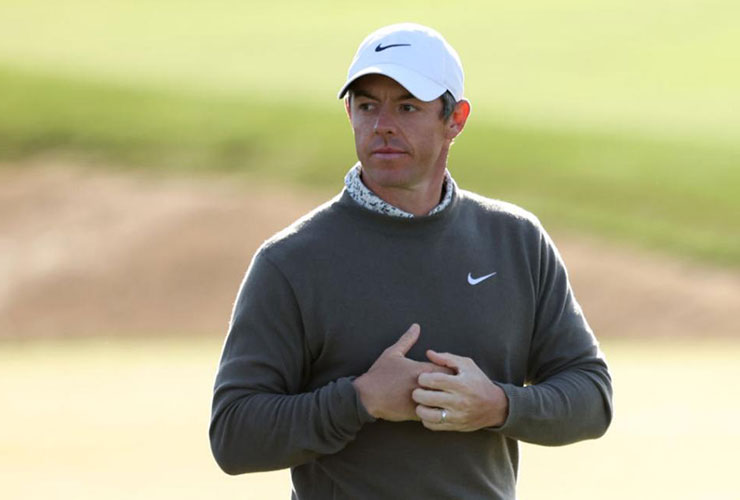Whether you’re a fan of LIV Golf, its arrival sent a clear message to the status quo of professional golf: It’s time to adapt.
This season, we’ve started to see that mandate taking shape. The PGA Tour has bumped up the purses at a select group of “designated” events — this week’s WM Phoenix Open, with its $20 million prize money payout, is one of them — while CBS has rolled out a drumbeat of new initiatives to improve its golf broadcasts. Max Homa’s mid-round interview en-route to victory at the Farmers Insurance Open two weeks ago was the most notable.
Meanwhile, the forthcoming Netflix documentary series “Full Swing”, which drops next week, has become a mainstay in the background. It’s all forced pros to take a good, hard look at their own comfort zones with where to draw the line with the media and wonder how to adjust.
Rory McIlroy, who has served as a de facto spokesperson for the PGA Tour in the fight against LIV, is chief among them. McIlroy said he was “open” to the idea of doing an on-course interview, but still needed some “convincing”. It’s a similar approach he took when Netflix came to him about being part of the docuseries.
“I sort of took the attitude of see how the first season works out, to see if I feel comfortable letting cameras get into my life a little bit more,” he said.
That changed, however, amid the crack-up of professional golf, and a conversation with showrunner Chad Mumm that convinced McIlroy to add his voice to the series. Yet even when he did sign on, at this week’s WM Phoenix Open, McIlroy revealed he didn’t throw the door wide open.
“I made sure that the parameters were very much: You’re not coming to my house, you’re not coming in my car, you’re not coming anywhere near my family,” he said. “If you want to do some stuff with me at golf tournaments, that’s fine. They were the ground rules that were sort of set.”
New ground rules for a disrupted world, one everyone involved is still trying to figure out.









